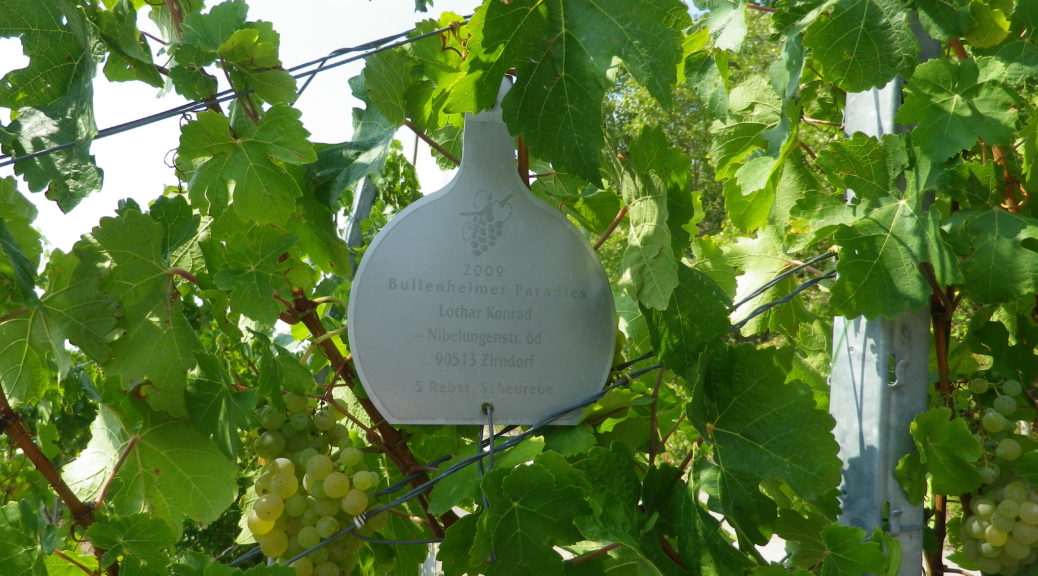What I Learned
Of the Franconia (Franken) wine region’s districts, the Steigerwald district is undoubtedly less well-known than the other two (the Maindreieck around Wuerzburg, and the Mainviereck), and consequently, one of the least visited. The Steigerwald is a tranquil area, focused largely on agriculture. One major attraction is the relatively large Steigerwald Nature park, with wide swathes of tree-covered hills. But on the edges of those hills are vineyards. The vineyard area is known as Frankenberger Schlossstueck, with three vineyards – the Hohenbuehl, the Tannenberg, and the Paradies, belonging to the villages of Seinsheim, Huettenheim and Bullenheim respectively.
Mueller-Thurgau, Silvaner and Bacchus are the three most common grape varieties planted here. The Bacchus varietal was created by crossing a Riesling with a Silvaner, then with a Mueller-Thurgau. The three parent varietals all do relatively well in cooler climate, which is why these, along with Bacchus, are the most planted varietals in this district. These grapes tend to produce light, fruity, white wines, a delight to drink chilled. Normally neither as acidic, nor as aromatic as Riesling, both the Silvaner and Bacchus wines are less-intense alternatives to Riesling, and are found almost only in Franconia.
What I Tasted
2017 Mueller-Thurgau, Kabinett, Trocken, Paradies Wein: A dry white wine with medium minus gold color; nose of green apple and gooseberry, with vanilla, green apple, and slight stone fruit flavors; medium plus acidity, with a tart lengthy finish.
2017 Bacchus, Kabinett, Halbtrocken, Winzerhof Klaus Markert (Weigenheim): A semi-dry white wine, with medium gold color; apricot, white peach and vanilla aromas and flavors; medium acidity.
2016 Bacchus, Bullenheimer Paradies, Kabinett, Halbtrocken, Weinbau Erich Schwemmer (Seinsheim): A semi-dry white wine, with medium minus gold color; neutral nose, with apricot, white peach and vanilla flavors; medium minus acidity.
